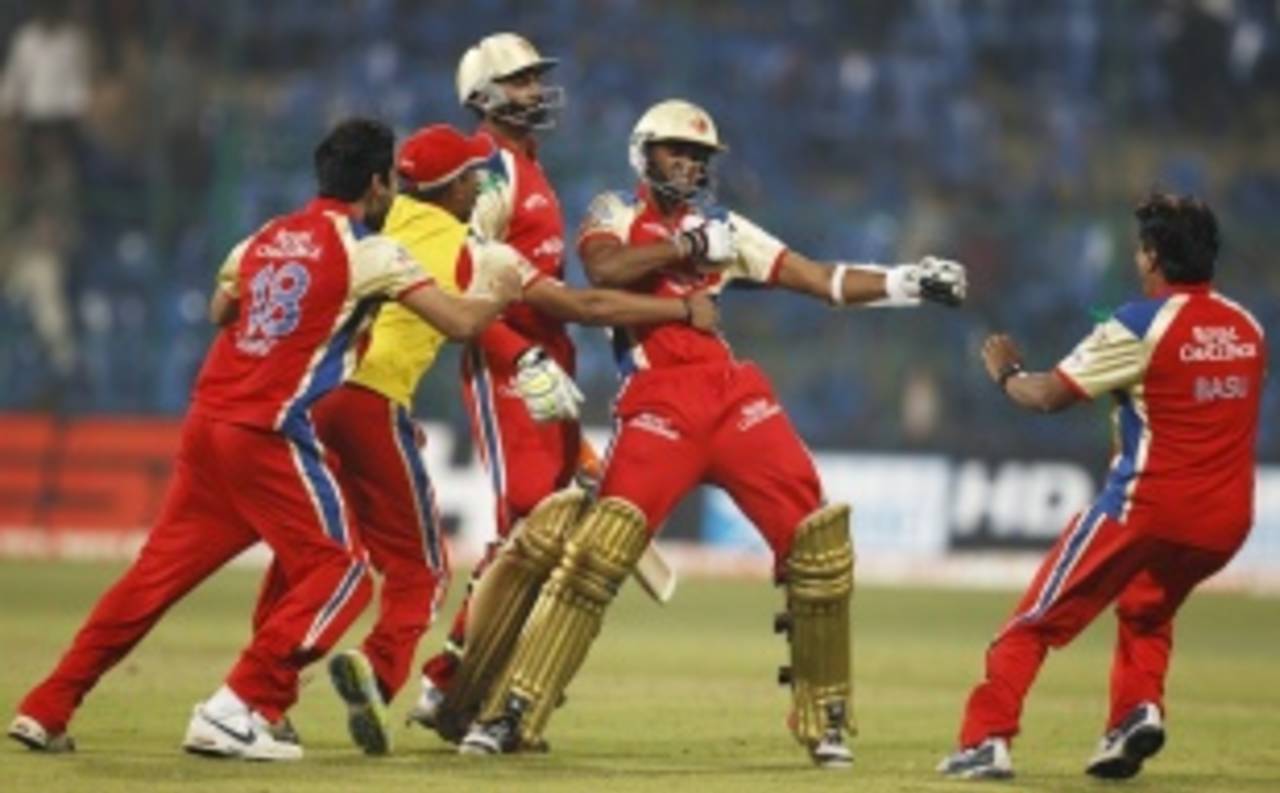In recent times, from newspapers and message boards, in informal conversations, I had begun to get the feeling that 20-overs cricket was the root of all evil in our game; a seductress out to tempt all the nice young men who otherwise would have worshipped in temples. And when I said I liked 20-overs cricket, I got curious responses.
"That's Mickey Mouse cricket".
"So how much do they pay you to say that?"
I have always wondered why it has to be one or the other. Dravid or Tendulkar? Rap or classical? Pizza or dosa? Brazil or Argentina?
I'm sorry but I like both Test cricket and 20-overs cricket. And the one-day international. I realise they demand different skills but I am unwilling to create a hierarchy of skills. Because we have been brought up believing one form is superior, or that the skills it demands are superior, it doesn't necessarily imply that other skills are trivial. Some of us were conditioned to look down on people who weren't good at mathematics but were brilliant on stage. We weren't allowed to respect different skills equally. If you understood why the quality of mercy was "twice blessed", you were okay, but if you didn't understand the relationship between vapour density and molecular weight, woe upon you.
I fear we look at Test cricket and 20-overs with similarly prejudiced eyes. We grade them, we create our own class system, because that is what we were conditioned to do. But over two days in Chennai and Bengaluru, I saw performances that made me sit up and question this rigid adherence to a hierarchy of skills.
In devilish humidity
in Chennai, and on a sluggish track, albeit one freshened a bit by dew, David Warner put up an extraordinary display of power-hitting. He made 135 not out off 69 balls against an attack that had three frontline bowlers who had made their country's World Cup team, and one who would have had he not been injured. Warner didn't resemble a blacksmith at any point, got runs when others struggled to get them; and when tired, hit a ball onto the roof of the stadium and beyond. If batting in 20-overs cricket was so easy, there would be many more innings like that one; if making a 20-second commercial was so simple, there would be many great ad filmmakers.
Warner played cricket shots, he timed the ball beautifully. He worked on a different definition of risk, maybe, but he did all that with a level of skill that was breathtaking to watch. How many contemporary cricketers can consistently deposit good balls over the boundary rope? If leaving a ball is a sign of good judgement - and it often truly is - hitting a good ball over long-on should be too.
And then, a day later, I was at
one of the great matches I have seen. On an excellent batting surface, a group of tough Aussies who played hard and loved a scrap scored 214 for 2. They didn't smash every ball out of the park. In fact, Daniel Harris hit 17 boundaries before his first six, and almost all of them were in a lovely arc from extra cover to midwicket. Then, two outstanding talents, Callum Ferguson and Virat Kohli, timed the ball as well as anyone can, ran hard between wickets, and deposited balls over the boundary with great nonchalance. They weren't hitting the ball 62 metres, it was more like 80. And when 214 looked like it would be overhauled (a feat as unthinkable as South Africa chasing 434), Shaun Tait bowled fast and straight and knocked batsmen over. None of it was easy. And to add to the drama, a six was hit off the last ball to win the game.
I can hear people saying: but they didn't have to face any chin music, or deal with the ball seaming on a green top. Yes, batting in those conditions requires great skill, but you don't have to be good at everything. There isn't a hierarchy that goes down from sublime to respectable to crass. You don't have to know the precise calculations behind the working of the Large Hadron Collider to teach physics to 17-year-olds well enough. You don't have to understand dark matter or play Tchaikovsky at 10 to be respectable. Twenty-overs cricket requires slightly different skills and not everyone can be good at it either.
I enjoyed the World Cup, loved seeing the intensity with which England played Test cricket, and for many reasons have enjoyed watching the Champions League T20. Unlike in a good marriage, you don't have to love only one.
